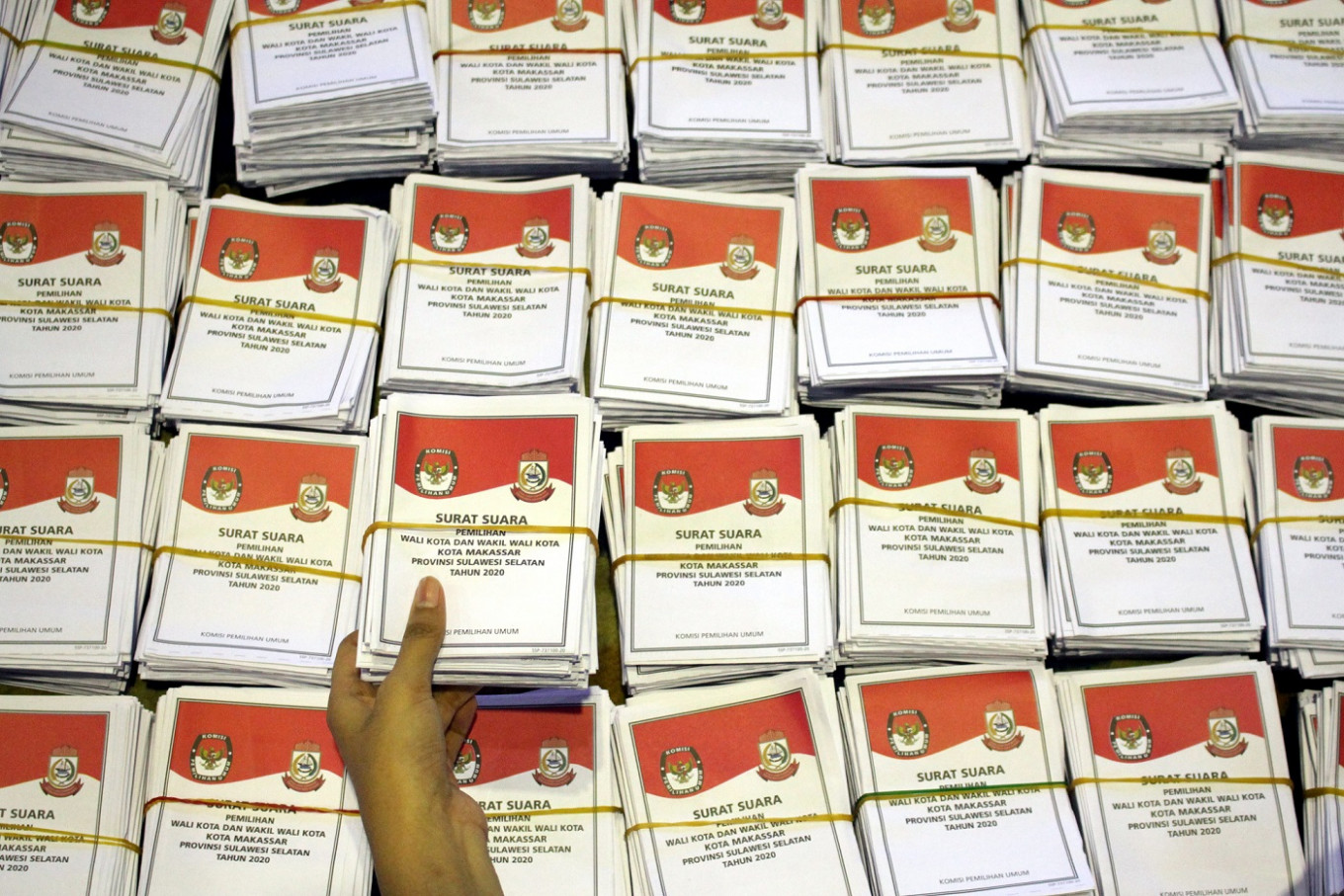Plan to tap TNI, police for vacant regional seats raises concerns
Military, police personnel eligible for govt positions after discharge
Change Size

C
oncerns have emerged that the government may appoint senior Indonesian Military (TNI) and National Police leaders as acting regional heads to fill a number of local seats that will be vacated before the nationwide regional elections in 2024.
The terms of 271 regional leaders will expire before the 2024 elections, including those of the governors of Jakarta and Banten, which will end next year, and of the governors of West Java, East Java and Central Java, which will end in 2023.
The prevailing 2016 Regional Elections Law allows the government to appoint high-ranking state officials – for example, secretaries general, directors general and inspectors general – as acting governors until the regions in question elect definitive leaders through the 2024 polls.
Although TNI personnel and police officers are generally barred from holding civil positions, according to the 2014 Civil Servants Law, they can be appointed to certain high-ranking government positions after they have been discharged from duty. This makes them eligible to serve as acting governors.
Critics are wary of the potential for an increased military and police presence in national politics, especially as military involvement in state affairs was a core element of former president Soeharto’s authoritarian New Order regime.
Read also: Hundreds of regional leaders to be appointed by govt as House endorses 2024 polls
Political observer Adi Prayitno urged the government not to choose any military or police leaders to fill the 271 regional head positions to be vacated, as it would stray from the spirit of the Reform Era, which had been in part about separating civil power from military and police power.
"This is certainly a gamble for our democracy in the future. Especially now that we have a lot of good potential leaders coming from the political or civil sectors, it’s not rational to appoint a military or police officer," he told The Jakarta Post.
“Neither the TNI nor the National Police have the political legitimacy to lead regions. Appointing them without public [electoral] participation is against democracy."
Arya Fernandes of the Centre for Strategic and International Studies (CSIS) said there was no urgency to appoint military or police officers as regional heads – even for security reasons – because each region already had regional police and military commands.
"They do not have work experience in the bureaucracy, which is culturally different from the military," he said, as quoted by Tempo.
Home Ministry spokesperson Benni Irwan said on Sunday that the appointment of high-ranking police or military officials as acting governors had a precedent, Koran Tempo reported, and cited the 2016 Regional Elections Law as the legal basis for their appointment.
But Benni said on Monday that the Home Ministry had not begun discussing the matter, as reported by Kompas.com.
Benni did not respond to the Post’s inquiry for comment.
Read also: 2024 elections remain mired in uncertainty
Although policymakers have yet to set the specific election dates, 2024 will be the first time in Indonesian history that national-level and nationwide regional elections will be held in the same year.
The General Elections Commission (KPU) wants to hold the national-level election – that is, for the presidency and legislature – in February 2024 and the regional elections in November of that year. But Coordinating Political, Legal and Security Affairs Minister Mahfud MD said that after a discussion involving President Joko “Jokowi” Widodo and certain ministers on Monday, the government would propose May 15 “as the most rational election date” to lawmakers and the KPU.
Two weeks earlier, Home Minister Tito Karnavian had proposed moving the national elections closer to the regional elections, perhaps in April or May. He said this was because an early national election would prolong political polarization and undermine government programs.
His idea sparked concerns from observers about overlapping election cycles and a heavier workload on organizers undermining the quality and fairness of the elections. Many experts have also demanded that the government, lawmakers and the KPU set the election dates quickly so that the KPU can develop plans to mitigate potential issues.









